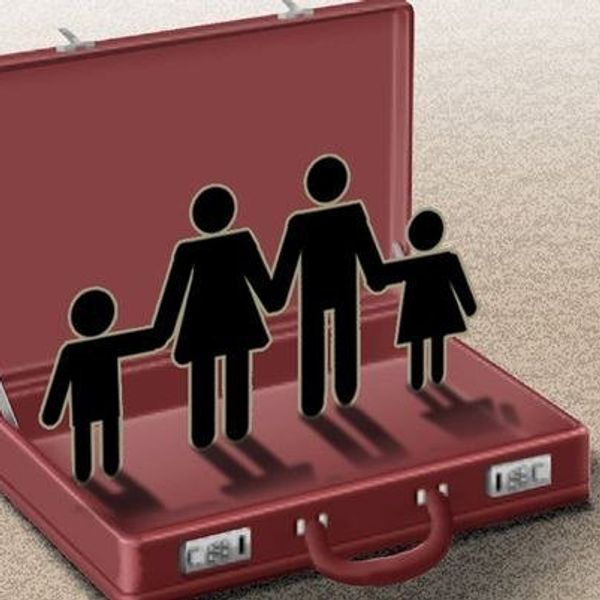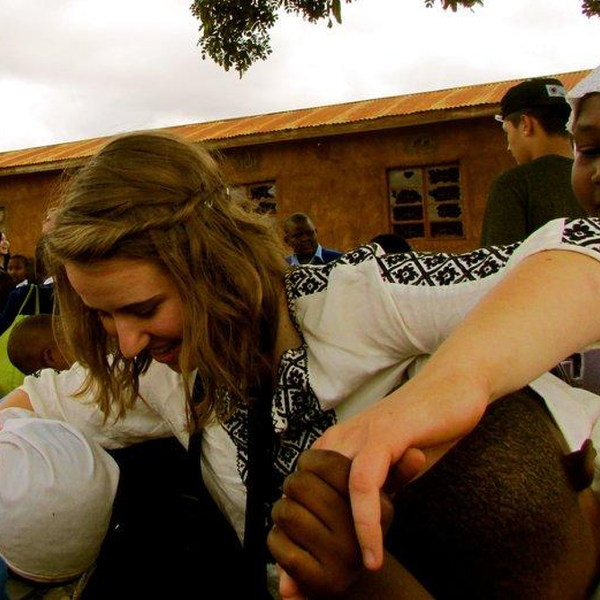As a kid, my parents placed a lot of value on travel, saying there was nothing more valuable than experience. And by the time I was eight, I had developed a list (which I still have) of the places that I wanted to explore throughout my life. At the top of this list? Africa. Don’t ask me why -- I honestly couldn’t tell you what has drawn me to this incredible continent at such a young age, but I knew I needed to go.
Flash forward about 13 years and I was boarding a plane to East Africa -- Kenya, to be specific, with no idea what I was getting myself into. I tried to imagine the people, the sights, and the sounds I would see when I landed, but I had nothing. I had no idea what to expect from this very foreign place and a culture that was so polar opposite of my own.
Eight thousand miles and over 24 hours later, I landed in Kenya. Walking off the plane, my clothes were already sticking to my skin and I stuck out like a sore thumb. This is not a new feeling for me, mind you. When I was six, my parents moved me to New Zealand for two years, placing me at a 95 percent Maori school where I very clearly stuck out in the crowd (a story for another time). My pale skin and very, very blonde hair has a tendency to call attention in these settings and this was no exception. I remember looking around at my fellow classmates to try and gauge how they were taking in this change in scenery. I was entirely overwhelmed, to say the least.
And this was a common feeling over the next week or so, as I adjusted to living in the small village of Kochia, Kenya. There were such vast cultural differences and practices that I couldn’t help but feel uncomfortable -- something Tim and Liz, our fearless group leaders, had warned us about before we embarked on this adventure. They said that this feeling was normal (phew!) but that it was our job to learn to find comfort in the discomfort.
This was not an easy task for me, and I had no idea how I could possibly find comfort in things that were so far from my norm. From the intense poverty I witnessed every single day to the patriarchal values that have been ingrained into their society (by white affluent colonizers, mind you), I found my personal morals and values challenged constantly. The key to handling this? Keeping an open mind. And believe me, this is way easier said than done. As a woman not afraid to identify as a feminist, as a believer in equality and justice with values and traditions that had been ingrained in me from my own culture, it is incredibly difficult to stay objective in some of these instances. But in the moments that I did, I found that those are when I learned the most.
Our “mothers” or “minowas” were the women who cared for us on a daily basis. From giving us hugs the way our own mothers would to making us laugh till our stomachs hurt, these were the women that comforted me on a daily basis. Their wisdom, love and kindness were beacons of light through the weeks, and there was not a day that I did not look forward to coming home to them. Kochia became home because of these women, and the many people who opened their arms and hearts to eleven fairly affluent college students without hesitation. I could not have been farther from my home in question, and yet, this is where I learned that home is made from the people you surround yourself, not the place you settle in.
What I can tell you now, with confidence, is that there is comfort in discomfort. That while the unknown is scary, there is a beauty that is unmatched. By embracing any discomfort you might feel -- particularly when traveling, but also in any aspect of your life -- you open yourself up to endless possibilities. I was challenged on a daily basis during my time in both Kenya and Rwanda, but I have never learned more about myself than when I was forced to embrace the uncomfortable.





















